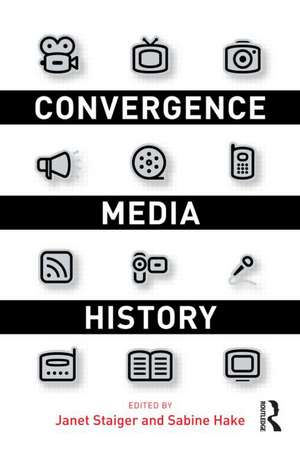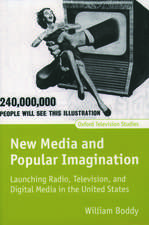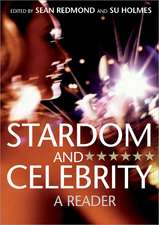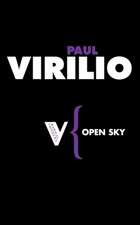Convergence Media History
Editat de Janet Staiger, Sabine Hakeen Limba Engleză Paperback – 22 iun 2009
| Toate formatele și edițiile | Preț | Express |
|---|---|---|
| Paperback (1) | 354.35 lei 6-8 săpt. | |
| Taylor & Francis – 22 iun 2009 | 354.35 lei 6-8 săpt. | |
| Hardback (1) | 1058.79 lei 6-8 săpt. | |
| Taylor & Francis – 22 iun 2009 | 1058.79 lei 6-8 săpt. |
Preț: 354.35 lei
Nou
Puncte Express: 532
Preț estimativ în valută:
67.81€ • 73.63$ • 56.96£
67.81€ • 73.63$ • 56.96£
Carte tipărită la comandă
Livrare economică 22 aprilie-06 mai
Preluare comenzi: 021 569.72.76
Specificații
ISBN-13: 9780415996624
ISBN-10: 0415996627
Pagini: 224
Ilustrații: 1 table and 20 halftones
Dimensiuni: 152 x 229 x 13 mm
Greutate: 0.41 kg
Ediția:1
Editura: Taylor & Francis
Colecția Routledge
Locul publicării:Oxford, United Kingdom
ISBN-10: 0415996627
Pagini: 224
Ilustrații: 1 table and 20 halftones
Dimensiuni: 152 x 229 x 13 mm
Greutate: 0.41 kg
Ediția:1
Editura: Taylor & Francis
Colecția Routledge
Locul publicării:Oxford, United Kingdom
Public țintă
Postgraduate and UndergraduateCuprins
Part One: New Methods
1. From Accented Cinema to Multiplex Cinema, Hamid Naficy
2. Franchise Histories: Marvel, X-Men, and the Negotiated Process of Expansion, Derek Johnson
3. When Pierre Bourdieu Meets the Political Economists: RKO and the Leftists-in-Hollywood Problematic, Chris Cagle
4. Touch, Taste, Breath: Synaesthesia, Sense Memory, and the Selling of Cigarettes on Television, 1948-1971, Marsha F. Cassidy
5. Rewiring Media History: Intermedial Borders, Mark Williams
Part Two: New Subjects
6. Provincial Modernity? Film Exhibition at the 1907 Jamestown Exposition, Kathryn H. Fuller-Seeley
7. Exhibition in Mexico during the Early 1920s: Nationalist Discourse and Transnational Capital, Laura Isabel Serna
8. The Recording Industry’s Role in Media History, Kyle S. Barnett
9. Forging a Citizen Audience: Broadcasting from the 1920s through the 1940s, Richard Butsch
10. Bobby Jones, Warner Bros., and the Short Instructional Film, Harper Cossar
Part Three: New Approaches
11. Bonding with the Crowd: Silent Film Stars, Liveness, and the Public Sphere, Sue Collins
12. The Comfort of Carnage: Neorealism and America’s World, Karl Schoonover
13. "Talk about Bad Taste": Camp, Cult, and the Reception of What’s New Pussycat? Ken Feil
14. Selling Out, Buying In: Brakhage, Warhol, and BAVC Understanding, Dan Leopard
15. Whatever Happened to the Movie-of-the-Week? [the shocking true story of how made-for-TV movies disappeared from broadcast networks], Alisa Perren
Part Four: Research Issues
16. Doing Soap Opera History: Challenges and Triumphs, Elana Levine
17. Stalking the Wild Evidence: Capturing Media History through Elusive and Ephemeral Archives, Pamela Wilson
18. Historicizing Web Design: Software, Style, and the Look of the Web, Megan Sapnar Ankerson
Bibliography on Media Historiography
1. From Accented Cinema to Multiplex Cinema, Hamid Naficy
2. Franchise Histories: Marvel, X-Men, and the Negotiated Process of Expansion, Derek Johnson
3. When Pierre Bourdieu Meets the Political Economists: RKO and the Leftists-in-Hollywood Problematic, Chris Cagle
4. Touch, Taste, Breath: Synaesthesia, Sense Memory, and the Selling of Cigarettes on Television, 1948-1971, Marsha F. Cassidy
5. Rewiring Media History: Intermedial Borders, Mark Williams
Part Two: New Subjects
6. Provincial Modernity? Film Exhibition at the 1907 Jamestown Exposition, Kathryn H. Fuller-Seeley
7. Exhibition in Mexico during the Early 1920s: Nationalist Discourse and Transnational Capital, Laura Isabel Serna
8. The Recording Industry’s Role in Media History, Kyle S. Barnett
9. Forging a Citizen Audience: Broadcasting from the 1920s through the 1940s, Richard Butsch
10. Bobby Jones, Warner Bros., and the Short Instructional Film, Harper Cossar
Part Three: New Approaches
11. Bonding with the Crowd: Silent Film Stars, Liveness, and the Public Sphere, Sue Collins
12. The Comfort of Carnage: Neorealism and America’s World, Karl Schoonover
13. "Talk about Bad Taste": Camp, Cult, and the Reception of What’s New Pussycat? Ken Feil
14. Selling Out, Buying In: Brakhage, Warhol, and BAVC Understanding, Dan Leopard
15. Whatever Happened to the Movie-of-the-Week? [the shocking true story of how made-for-TV movies disappeared from broadcast networks], Alisa Perren
Part Four: Research Issues
16. Doing Soap Opera History: Challenges and Triumphs, Elana Levine
17. Stalking the Wild Evidence: Capturing Media History through Elusive and Ephemeral Archives, Pamela Wilson
18. Historicizing Web Design: Software, Style, and the Look of the Web, Megan Sapnar Ankerson
Bibliography on Media Historiography
Descriere
Convergence Media History explores the ways that digital convergence has radically changed the field of media history. Writing media history is no longer a matter of charting the historical development of an individual medium such as film or television. Instead, now that various media from blockbuster films to everyday computer use intersect regularly via convergence, scholars must find new ways to write media history across multiple media formats. Each essay in this collection addresses a single medium—including film, television, advertising, sound recording, new media, and more—and connects that specific medium’s history to larger issues for the field in writing multi-media or convergent histories.












